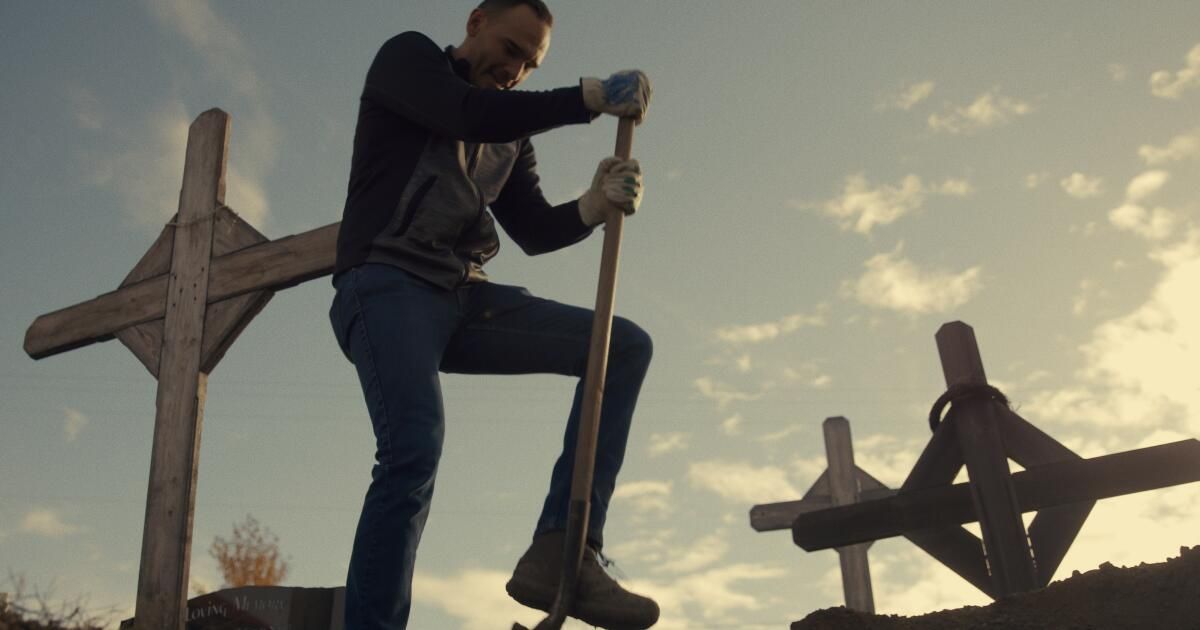A crumbling barn where trapped children scrawled messages like “73 more days.” An elderly survivor of abuse by a priest points to the day in her youth when she started drinking. An abandoned baby who becomes an abandoning father whose son won’t let three generations suffer in isolation.
“Sugarcane” tells a story — many stories — happening everywhere in Canada, about what is being done, and what is still unsaid, about the trauma inflicted on Indigenous people by the country’s white-settled residential school system. This network of educational institutions, begun in the 19th century under the racist notion that Indians were a “problem” to be solved, preached assimilation but created lasting misery, from the mandatory separation that tore apart families to the unspeakable abuses that marked the lives of children there.
The schools may be closed now (the last federally funded one closed in 1997), but, as filmmakers Julian Brave NoiseCat and Emily Kassie show with compassionate determination, shame and grief continue to do a grim work on First Nations survivors and their descendants, even as their confrontation with their past occasionally produces answers. That reckoning takes many forms in the documentary’s carefully woven tapestry of lives on the Sugar Cane Reserve in British Columbia, where, in 2021, the discovery of unmarked graves at St. Joseph’s, a residential school run by the Catholic Church, makes headlines and triggers a vigorous investigation, headed by its young chief Willie Sellars. Along with the deployment of shovels, ground-penetrating radar, and an evidence board with pictures, timelines, and index cards, there’s a new attempt at healing in the community, through sacred rituals, meetings, and difficult conversations.
Ed Archie NoiseCat in the documentary “Sugarcane”.
(Emily Kassie / Sugarcane LLC Film)
This multifaceted cinematic approach, chronicling the painstaking work of an unsolved case and documenting what years of whispers and silence have wrought, is what gives “Sugarcane” its raw power. There’s also a palpable tension across time, especially in how the haunted present we witness contradicts the façade of normality in old class photos, official statements and the occasional glimpse of a black-and-white Canadian television documentary from 1962 that put a smiling face on the religious instruction of residential schools.
Even the landscape speaks of an emotional duality. It captivates with its natural beauty and expanse, while tragically underscoring the remoteness of places like St. Joseph's, where evil can hold secrets. Over time, however, a more harrowing sense of majesty emerges, from what it takes for people to tell their stories, which include cruelty, rape, disappearance, murder and suicide.
We follow one survivor — the stoic former Williams Lake boss Rick Gilbert, who remained a Christian — to Vatican City as part of a delegation receiving a papal apology. Later in that trip, on a visit to a bishop, when the camera focuses on his weathered face, a tear welling up as he speaks haltingly of his terrible childhood, you might believe that, in that moment, he is the strongest man in the world.
The road has been rougher for NoiseCat co-director Ed’s father, a soft-spoken artist with sublime woodworking skills who has long struggled with the reality of being abandoned as a baby (a not-uncommon fate for unwanted newborns at St. Joseph’s was infanticide in a roaring incinerator). An erasure nearly impossible to comprehend, the effect of which on the filmmaker’s family has been traumatic. But as this deeply moving depiction of cultural inquiry and resilience makes clear, to not talk about it is to give it further power.
'Sugarcane'
Qualification: R, for some language
Duration: 1 hour, 47 minutes
Playing: At Laemmle Royal, West Los Angeles











